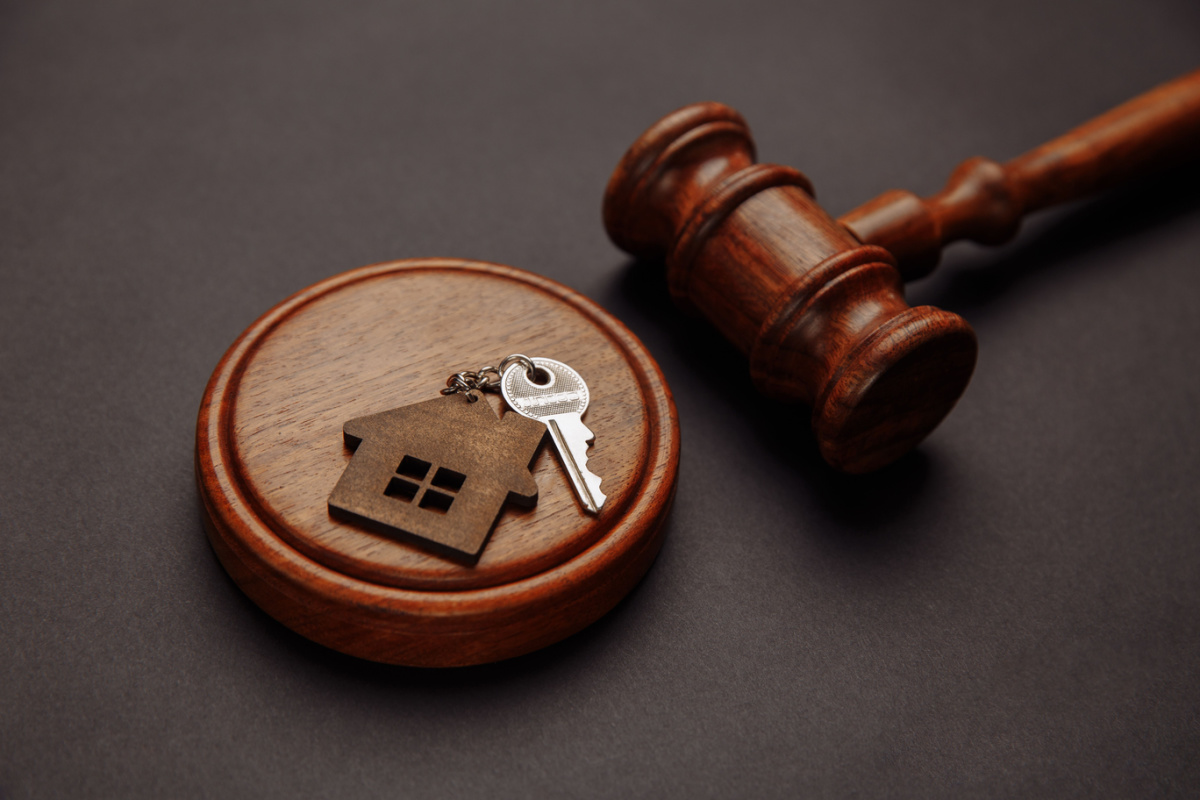




Attorney at Debt Advisors Law Offices
Practice Areas: Chapter 7 Bankruptcy, Chapter 13 Bankruptcy, Stop Foreclosure

As of August this year, there have been 25,019 eviction filings in the state of Wisconsin, and trending to reach pre-pandemic levels. The end of emergency rental programs in the state and the increased cost of living means filing for bankruptcy could be the best way to reorganize finances and have a fresh financial start. However, the threat of eviction is real when struggling financially. How can bankruptcy help to mitigate eviction?
Understanding bankruptcy’s role in halting eviction begins with grasping how financial hardship might lead to such drastic measures. When financial obligations become overwhelming, eviction becomes a real concern for many individuals and families. Bankruptcy serves as a legal process to temporarily stop or slow down eviction proceedings. By declaring bankruptcy, a person or household struggling with debt gains certain protections from creditors, including landlords. While not a permanent solution, bankruptcy can provide breathing room and allow time to develop a plan for future financial stability. The relationship between bankruptcy and eviction is complex but vital to understand for those facing a precarious financial situation.
Recognizing signs of financial distress can be an essential step in deciding when to consider bankruptcy. Financial distress often shows itself through constant struggles to pay bills, relying heavily on credit cards, and receiving calls or letters from debt collectors. When these signs become a regular occurrence, bankruptcy might become a viable option. It’s not an easy decision, nor should it be taken lightly, but understanding these warning signs can help someone determine when bankruptcy could be an appropriate path. It can provide a way to deal with overwhelming debt and may halt eviction or other serious financial consequences. Recognizing these signs early can lead to more options and better planning for financial recovery.
Chapter 7 and Chapter 13 are two main paths for personal bankruptcy, each serving a distinct purpose. Chapter 7, known as liquidation bankruptcy, involves selling non-exempt assets to pay off debts. It’s often suitable for those without significant assets who need a fresh start. Chapter 13, on the other hand, allows individuals to keep their property but requires them to pay back some or all their debts over three to five years. It’s commonly chosen by those with regular income who can make consistent payments. Understanding these two options helps individuals select an appropriate bankruptcy path. Neither is inherently better; rather, each corresponds to different financial situations and needs. Selecting between them requires careful consideration of personal financial circumstances, goals, and the specific requirements of each bankruptcy type.
Legal protections offered by bankruptcy can have a significant impact on eviction proceedings. When an individual files for bankruptcy, an automatic stay goes into effect, which temporarily stops most collection actions by creditors, including eviction. It’s not a permanent solution, but it can provide valuable time to figure out next steps. It’s worth noting, though, an automatic stay might not halt an eviction if a landlord has already obtained a judgment of possession before bankruptcy is filed. Additionally, in a Chapter 13 bankruptcy, a person might be able to pay off rent arrears over time, further delaying or even preventing eviction. Understanding these legal protections and how bankruptcy influences eviction can empower individuals facing financial struggles to make informed decisions about their unique situations.
Filing for bankruptcy involves several procedures and forms and must be completed in a precise manner. First, individuals must undergo credit counseling from an approved agency. Next, specific forms must be filled out, detailing all financial information including income, expenses, debts, and assets. These forms are then filed with a bankruptcy court, marking an official bankruptcy case’s beginning. A fee is usually required at this stage. After filing, a meeting with a bankruptcy trustee and creditors takes place, where financial matters are discussed. Finally, debtors must complete a debtor education course before debts can be discharged.
Filing for bankruptcy is a multi-step process beginning with careful preparation. Procedures and forms are an integral part of this process. Initially, individuals must attend a credit counseling session with an approved provider. Following counseling, a series of forms must be completed, detailing all aspects of one’s financial situation, such as debts, assets, income, and expenses. These forms are then filed with a bankruptcy court, initiating the bankruptcy case. A fee is usually associated with this filing. Afterward, a meeting with creditors and a bankruptcy trustee is scheduled to review the financial information provided. Finally, completion of a debtor education course is required before receiving a discharge of debts.
Life after bankruptcy brings with it several effects on credit and finances. One immediate impact is a significant drop in credit score. A bankruptcy filing stays on a credit report for up to ten years for Chapter 7 and seven years for Chapter 13. During these periods, obtaining new credit may become more challenging, and interest rates offered might be higher. However, bankruptcy also eliminates many debts, providing a clean slate for building new financial habits. Over time, individuals can rebuild their credit by managing finances responsibly, paying bills on time, and avoiding excessive debt. Additionally, some lenders specialize in working with those who have bankruptcy on their record, so opportunities for loans or credit cards still exist.
Alternatives to bankruptcy can be vital to explore when seeking options for stopping eviction. One possibility is negotiating directly with landlords to develop a payment plan or secure more time to pay. Another option might be seeking assistance from local social service agencies or charities, which sometimes offer emergency funds for rent. State or local government programs might also provide temporary aid for those facing eviction. Additionally, consolidating debt or working with a credit counseling service can lead to more manageable monthly payments, allowing for rent payment.

Reflections on bankruptcy to stop eviction reveal various options, potential benefits, and challenges. Whether considering Chapter 7 or Chapter 13, understanding personal financial circumstances is key to selecting a suitable path. Alternatives to bankruptcy should also be explored, as other options might better suit an individual’s needs. While this guide provides an overview of these issues, further assistance and information can be found through credit counseling agencies, social service organizations, and government programs offering support for housing and financial difficulties. Bankruptcy can be a powerful tool in the fight against eviction, understanding its intricacies and carefully considering all options will be essential.
For those considering bankruptcy, it’s essential to delve deeper into the specifics. By visiting My Debt Advisors, one can gain a comprehensive understanding of the legal rights associated with debt collection at Understanding Legal Rights in Debt Collection. Moreover, understanding how bankruptcy influences your credit score is crucial, and information on this can be found at Bankruptcy’s Impact on Credit. Additionally, considering the long-term, it’s worth examining how filing might affect retirement funds, with further insights available at Bankruptcy’s Impact on Retirement Funds. These resources can offer clarity and guidance on complex topics surrounding bankruptcy.
If you are filing for bankruptcy, contact us or call us at 866-696-6432 today for a free consultation.

Learn about bankruptcy protections, types of bankruptcy, how to get started, what to expect, and who to trust. Filing bankruptcy is the ONLY way to completely eliminate debt. If bankruptcy is right for you, it offers powerful protections that cannot be achieved through alternative solutions such as hardship relief, loans, or debt settlement.